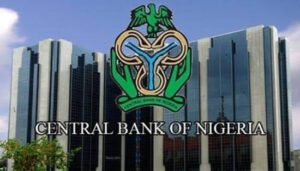


Afreximbank, Sterling Bank to offer supply chain finance in Nigeria
The African Export-Import Bank (Afreximbank) has partnered Sterling Bank to introduce an innovative supply chain finance product ‘Payables Finance,’ in Nigeria.
This is contained in a statement issued by Manager, Communications and Events, Afreximbank, Vincent Musumba, on Friday.
The statement said the product, branded as ‘Afreximbank Tradelink,’ was one of Afreximbank’s digital offerings under the umbrella of the Africa Trade Gateway (ATG).
It said ATG provided African corporates and commercial banks with relevant digital tools to access market information and connect with buyers and sellers across the continent for efficient marketing and procurement.
“It also facilitates Know Your Customer (KYC) processes, and promotes trade payments between African countries in local currencies.”
The statement said ‘Payables Finance’ enabled suppliers to access financing from the banking system by obtaining early payment for invoices that have been approved for payment by their corporate buyers.
“The buyers continue to receive trade credit from the suppliers, and the suppliers finance their working capital through the early payment received, enabling them to grow their business.
“The financing cost is linked to the credit rating of the corporate buyers, thereby making this product particularly valuable for Small Medium Enterprises suppliers who may face challenges in accessing bank finance at competitive pricing.”
The statement said ‘Payables Finance’ was the fastest-growing trade finance product globally and there was an enormous opportunity for African businesses to benefit from it.
It said the partnership with Sterling Bank was a unique and innovative arrangement that leverages the complementary strengths of both institutions to provide a comprehensive market-led solution to Nigerian corporates and their suppliers.
“Under this arrangement, Afreximbank will provide financing to corporates and banks in both US Dollars and Euros while Sterling Bank will manage financing in Naira.
“Suppliers of Nigerian corporates can thus benefit from financing in both local and foreign currency as per their requirements.”
The statement quoted Executive Vice-President, Afreximbank Global Trade Bank, Haytham ElMaayergi, as saying “Afreximbank identified supply chain finance as a solution for improving access to trade finance in Africa.
“The bank embarked on a journey to increase penetration through financial intervention and capacity building.
“The bank’s Factoring Working Group has done extremely well to provide lines of credit to support factoring and has actively promoted factoring across the continent in collaboration with other institutions.”
ElMaayergi said that the introduction of ‘Payables Finance’ was the next step on the bank’s roadmap for supply chain finance across Africa.
“African businesses now have the opportunity to harness the potential of this product.
“This product has been widely adopted globally, at an accelerated pace by learning from the experiences of other regions and using the latest technologies which have been developed,” he said.
The statement quoted Director & Global Head Trade Finance, Afreximbank, Gwen Mwaba, as saying “the launch in Nigeria is a first step in Afreximbank’s plans to introduce ‘Payables Finance’ across Africa in partnership with leading African financial institutions.
“The product will deploy world-class technology and a collaborative delivery model.
Mwaba said the product would also contribute towards the achievement of the bank’s strategic objective of reducing the trade finance gap in Africa, particularly for the SME segment.
It quoted Ecosystem Banking Head, Sterling Bank, Chukwuka Onuaguluchi, as saying “Sterling Bank is committed to meeting the trade finance needs of Nigerian corporates and their suppliers.
“We are proud to introduce this much-needed product in partnership with Afreximbank for the benefit of Nigerian businesses.”
According to the statement, Afreximbank provided both US Dollar and Euro financing to businesses in its member countries across Africa and in Caribbean Community (CARICOM) member countries.
It said the unveiling in Nigeria would be followed by similar partnerships in other African countries to expand local currency financing capability across the continent in a phased manner.
The statement said the adoption of the product would be supported by capacity-building events to increase awareness of supply chain finance and its benefits.
It said the product rollout in Nigeria was complemented by a workshop targeting corporate institutions and banks, in collaboration with Woodhall Capital, a leading finance company in Nigeria.
“Underpinning the delivery of these new financial products is a market-leading supply chain finance platform, developed by UK-based fintech Demica, a leader in working capital solutions.
“Demica works with the world’s leading banks to power their supply chain finance solutions. In 2021, the company established a partnership with Afreximbank to extend this technology to banks across Africa.”



